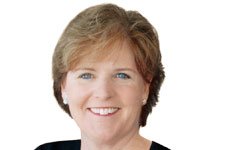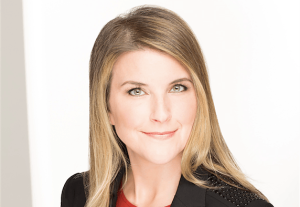Session Description: Just as in every other sphere, we are getting our health information in new ways. What will be our reliable sources?
Below is an excerpt of the panel, The New Media of Healthcare. The full transcript can be downloaded here.
David Kirkpatrick: So now we’re going to talk about something that’s a little bit different way of looking at the issues. It includes a lot of technology discussion, but it’s really about communications. What is media in this age and how is media changing the way we think about healthcare. We have three healthcare practitioners of the highest orders up here joining me.
From your left, Steve Zatz, the CEO of WebMD, and he’s a doctor. Next to him is Meredith Guerriero. She runs Facebook’s healthcare vertical. She also does other things, including running the politics and nonprofit vertical, which isn’t entirely irrelevant and we’ll get to address a little bit of that.
She’s dealing with a lot of regulated industries, so to speak. Finally, Lynn Vos, who I really appreciate because she’s been an advisor to us a little bit, and helped inspire this event to some significant degree. She has her own event, which is not that dissimilar, which is called what?
Lynn O’Connor Vos: Stream Health.
Kirkpatrick: Stream Health. A very cool event which I admire. She is CEO of grey healthcare group—greyhealth group. It’s an ad agency that just does health related stuff.
I want to start with you, Lynn. When you think about media in health—you’ve been here all day and you’ve heard a lot of discussions. How do we think about the relationship of how we get information about how we get information to all these complicated issues we’ve been discussing today?
Vos: I believe that the health media is really a major part of the healthcare ecosystem. Meredith is going to fill us in on all the data from Facebook and WebMD. There’s just an enormous number of people who are online continually looking for information; sharing information with peers. And we haven’t really maximized the opportunity with them there to turn these conversations into something more that would actually deliver higher outcomes. I would say that, based on the conversation today, the thing that strikes me is we’re spending so much time talking about sick care, so much time talking about how we’re going to fix the healthcare system, and yet it’s like, “Dorothy, click your heels!” We have it in the health media. We have it in retail health. Let’s go where the consumers are and try to actually address their needs there.
The other thing I think we could talk about a little later is there’s a changing health customer out there. Millennials, Gen X—they want things differently. They are online. They are inquisitive. They demand evidence. We haven’t at all talked about—nor do we hear about this, quite frankly, at most health conferences—the new health customer. What are they looking for and how can we meet that?
Kirkpatrick: When you say we have it, what do you mean exactly that we have?
Vos: I mean, I think we’ve done—there’s a lot of data. We’ve done several studies ourselves with Kantar taking a deeper dive into the different generations on what they expect in healthcare, what they’re looking for. And—I’ll just throw out for an example—millennials have no interest in having a primary care provider. Now, if that’s the truth and that’s what they’re saying, why are we spending so much time as we do talking about the doctor? Shouldn’t we also be talking about where else they’re going to get care, whether it’s telemedicine or through peer influence? That’s just kind of a thought starter.
Kirkpatrick: Maybe we’ll get more such insights from your research later. Let’s jump over to Steve, if we could. WebMD has been around for a long time and you have a huge footprint in this space of healthcare information. So talk about where the company is today and what you think of as its primary mission.
Steven Zatz: Sure. Look, the healthcare system is both complicated today and I think in the foreseeable future it’s going to remain complicated and confusing to consumers. We’ve always seen, at WebMD, the opportunity to provide information and to help people navigate this fragmented and complex healthcare world. People need information. Our whole mission has always been to say at some point you’re going to interact with the healthcare system. Can we prepare you as well as possible for those interactions, which have gotten shorter and shorter? You’re going to have to take more responsibility for managing your own healthcare. Sometimes that’s directly. We obviously have a lot of caregivers who come to us as well.
When you ask where we’re going, typically when you come to WebMD you’ve gotten information. If you wanted to do something, you needed to go somewhere else. We’re certainly looking hard at the fact, with all these digital options, to actually kind of complete the transaction, if you will. Whether it’s a telemedicine visit or whether you want to order a lab test right there. We really see this opportunity to not only help people understand what’s going on with their health, but really help them make a decision. And when they make that decision, actually—to the extent it can be done digitally, and more and more can—actually have them kind of complete that and get the information and get the care they need.




